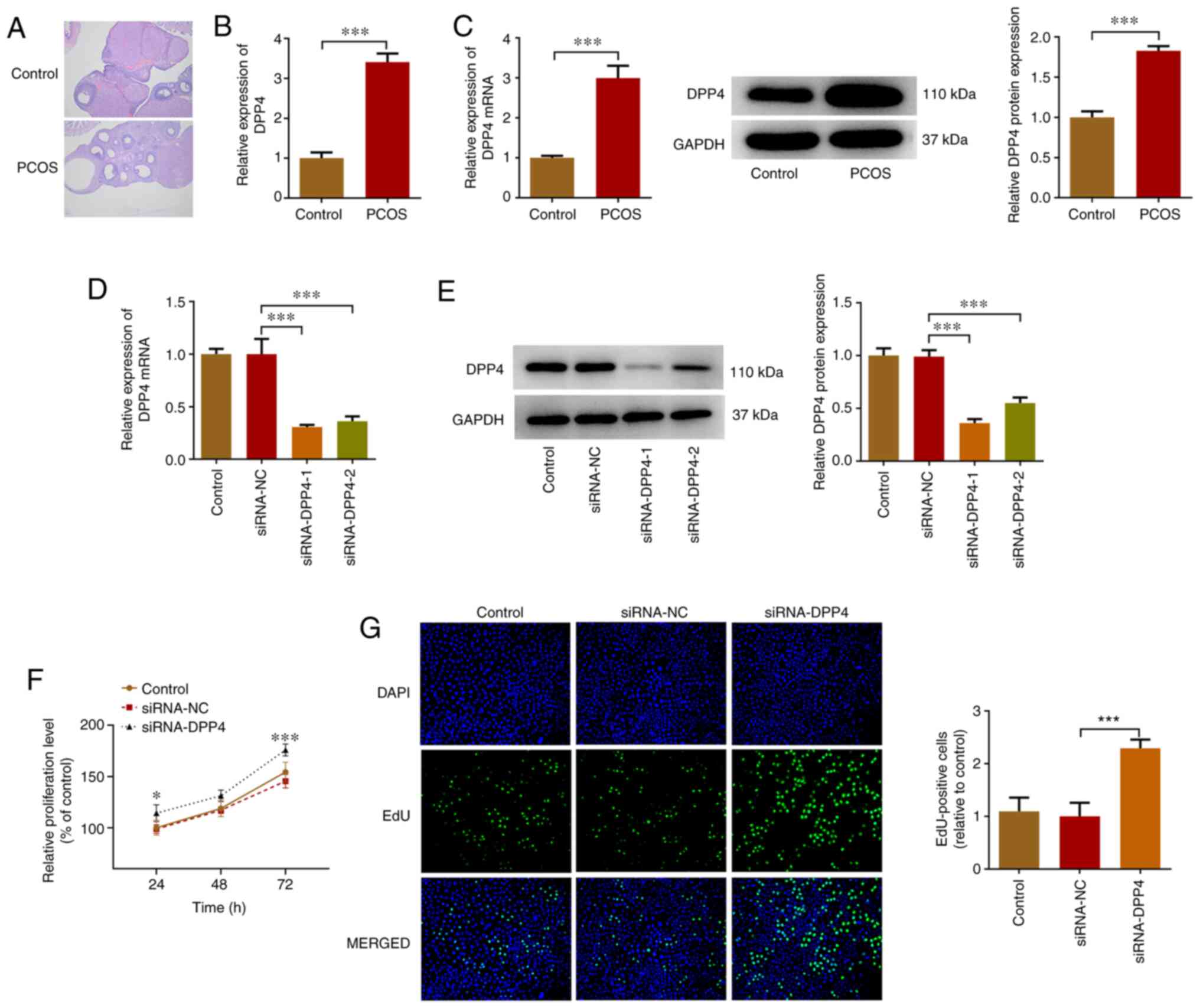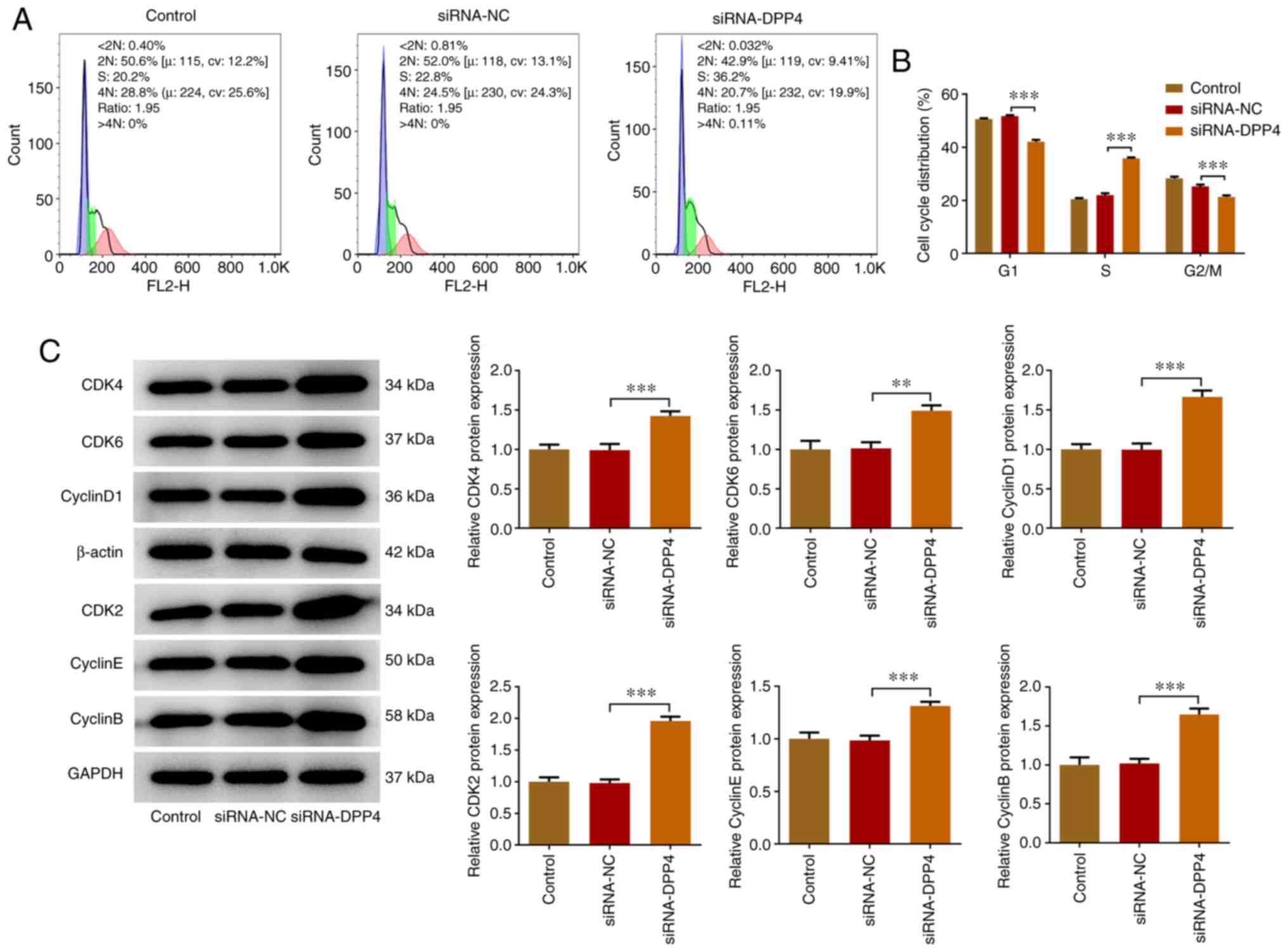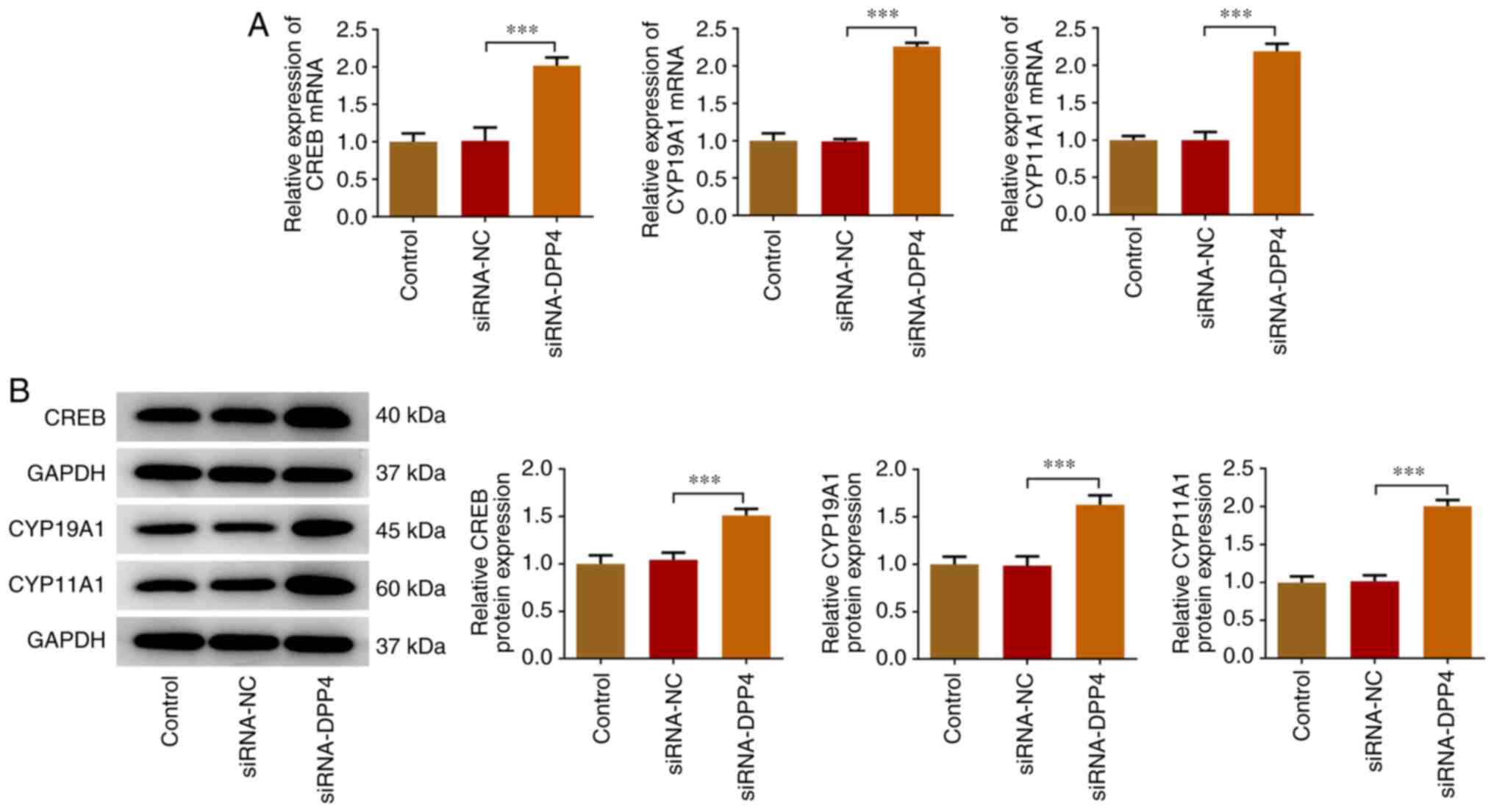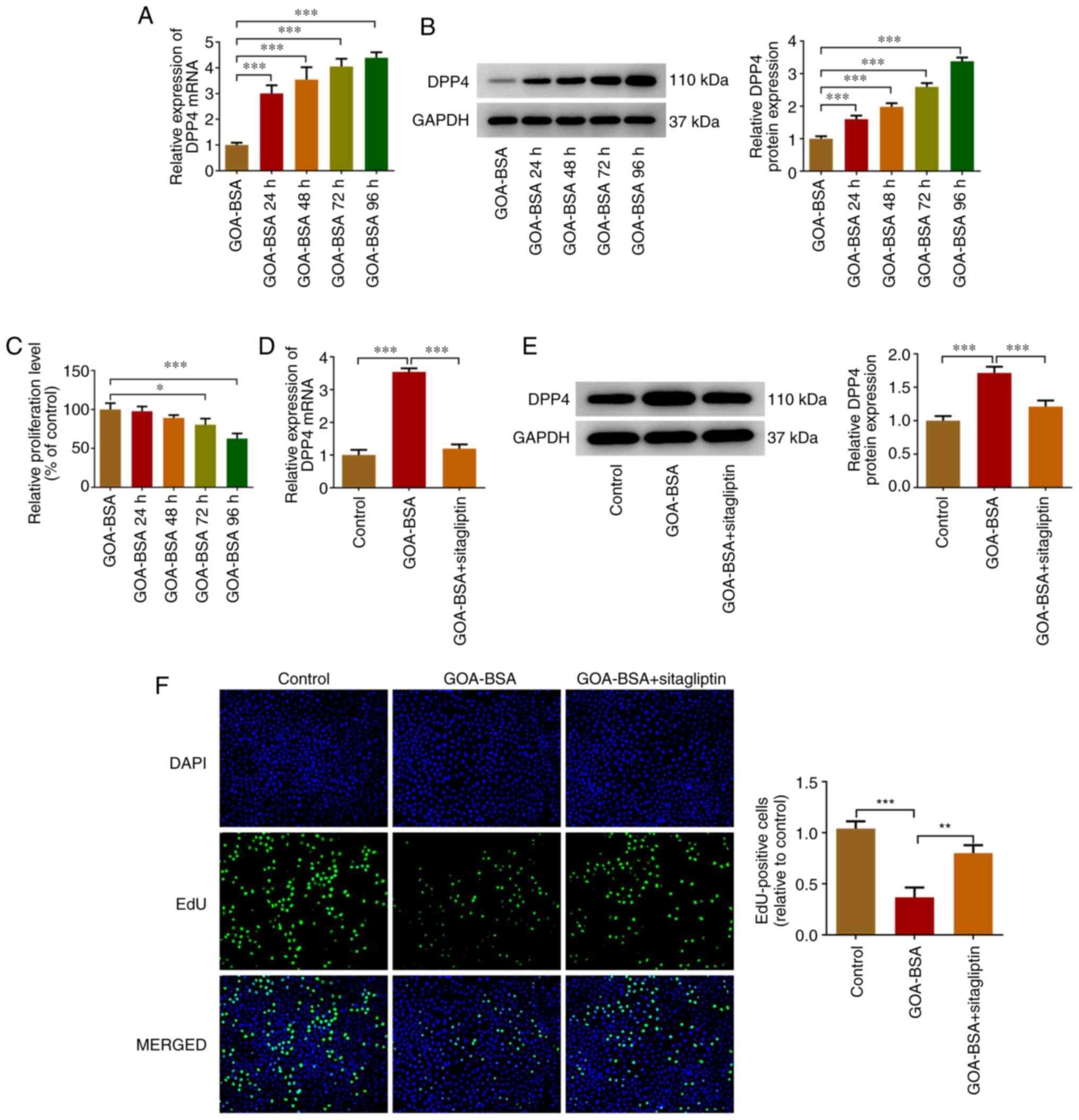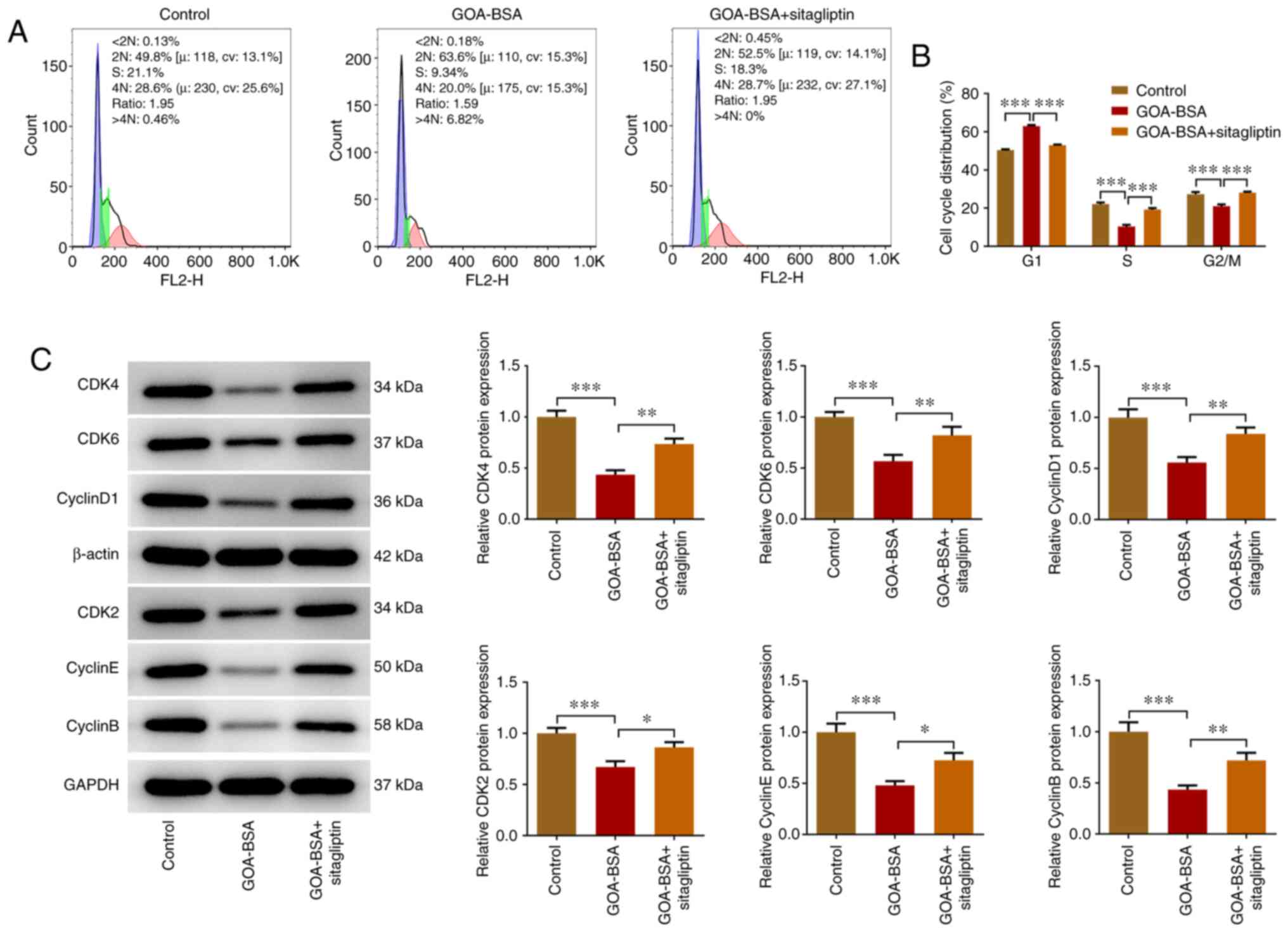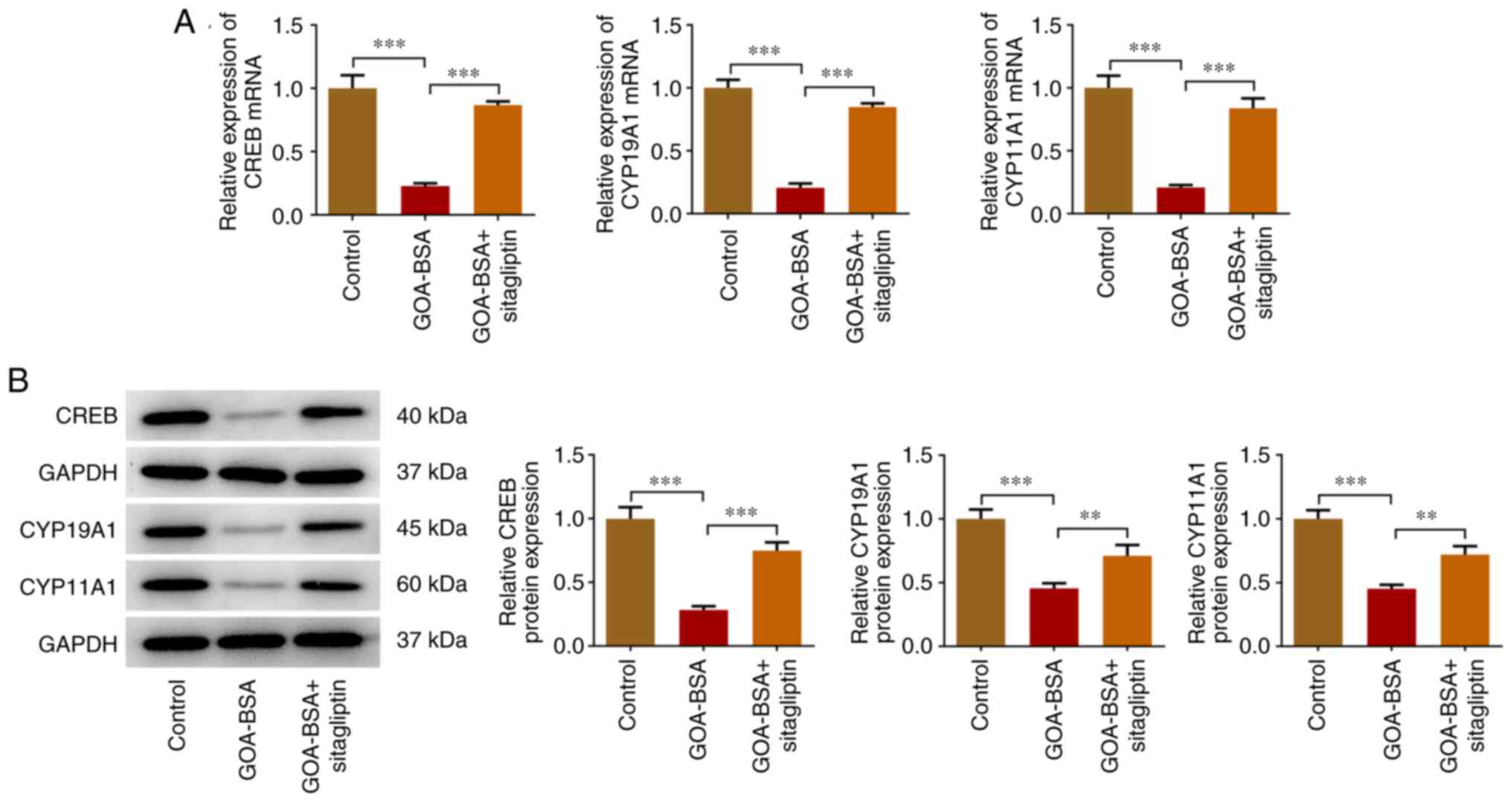|
1
|
Meier RK: Polycystic ovary syndrome. Nurs
Clin North Am. 53:407–420. 2018. View Article : Google Scholar : PubMed/NCBI
|
|
2
|
Nandi A, Chen Z, Patel R and Poretsky L:
Polycystic ovary syndrome. Endocrinol Metab Clin North Am.
43:123–147. 2014. View Article : Google Scholar : PubMed/NCBI
|
|
3
|
Goodarzi MO, Dumesic DA, Chazenbalk G and
Azziz R: Polycystic ovary syndrome: Etiology, pathogenesis and
diagnosis. Nat Rev Endocrinol. 7:219–231. 2011. View Article : Google Scholar : PubMed/NCBI
|
|
4
|
Ferriman D and Purdie AW: The aetiology of
oligomenorrhoea and/or hirsuties: A study of 467 patients. Postgrad
Med J. 59:17–20. 1983. View Article : Google Scholar : PubMed/NCBI
|
|
5
|
Balen AH, Conway GS, Kaltsas G,
Techatrasak K, Manning PJ, West C and Jacobs HS: Polycystic ovary
syndrome: The spectrum of the disorder in 1741 patients. Hum
Reprod. 10:2107–2111. 1995. View Article : Google Scholar : PubMed/NCBI
|
|
6
|
DeUgarte CM, Bartolucci AA and Azziz R:
Prevalence of insulin resistance in the polycystic ovary syndrome
using the homeostasis model assessment. Fertil Steril.
83:1454–1460. 2005. View Article : Google Scholar : PubMed/NCBI
|
|
7
|
Krentz AJ, von Muhlen D and Barrett-Connor
E: Searching for polycystic ovary syndrome in postmenopausal women:
Evidence of a dose-effect association with prevalent cardiovascular
disease. Menopause. 14:284–292. 2007. View Article : Google Scholar : PubMed/NCBI
|
|
8
|
Jedel E, Waern M, Gustafson D, Landén M,
Eriksson E, Holm G, Nilsson L, Lind AK, Janson PO and
Stener-Victorin E: Anxiety and depression symptoms in women with
polycystic ovary syndrome compared with controls matched for body
mass index. Hum Reprod. 25:450–456. 2010. View Article : Google Scholar : PubMed/NCBI
|
|
9
|
Barthelmess EK and Naz RK: Polycystic
ovary syndrome: Current status and future perspective. Front Biosci
(Elite Ed). 6:104–119. 2014.PubMed/NCBI
|
|
10
|
Rothenberg SS, Beverley R, Barnard E,
Baradaran-Shoraka M and Sanfilippo JS: Polycystic ovary syndrome in
adolescents. Best Pract Res Clin Obstet Gynaecol. 48:103–114. 2018.
View Article : Google Scholar : PubMed/NCBI
|
|
11
|
Nargis T and Chakrabarti P: Significance
of circulatory DPP4 activity in metabolic diseases. IUBMB Life.
70:112–119. 2018. View
Article : Google Scholar : PubMed/NCBI
|
|
12
|
Baumeier C, Schlüter L, Saussenthaler S,
Laeger T, Rödiger M, Alaze SA, Fritsche L, Häring HU, Stefan N,
Fritsche A, et al: Elevated hepatic DPP4 activity promotes insulin
resistance and non-alcoholic fatty liver disease. Mol Metab.
6:1254–1263. 2017. View Article : Google Scholar : PubMed/NCBI
|
|
13
|
Kawasaki T, Chen W, Htwe YM, Tatsumi K and
Dudek SM: DPP4 inhibition by sitagliptin attenuates LPS-induced
lung injury in mice. Am J Physiol Lung Cell Mol Physiol.
315:L834–l845. 2018. View Article : Google Scholar : PubMed/NCBI
|
|
14
|
Ozturk B, Gurbuz AS, Durak ZE and Ozturk
HS: Dipeptidyl peptidase-4 and adenosine deaminase enzyme levels in
polycystic ovary syndrome. Gynecol Endocrinol. 35:138–141. 2019.
View Article : Google Scholar : PubMed/NCBI
|
|
15
|
Wawrzkiewicz-Jałowiecka A, Kowalczyk K,
Trybek P, Jarosz T, Radosz P, Setlak M and Madej P: In search of
New therapeutics-molecular aspects of the PCOS pathophysiology:
Genetics, hormones, metabolism and beyond. Int J Mol Sci.
21:70542020. View Article : Google Scholar : PubMed/NCBI
|
|
16
|
Yamagishi S, Nakamura N, Suematsu M,
Kaseda K and Matsui T: Advanced glycation end products: A molecular
target for vascular complications in diabetes. Mol Med. 21 (Suppl
1):S32–S40. 2015. View Article : Google Scholar : PubMed/NCBI
|
|
17
|
Ishibashi Y, Matsui T, Maeda S,
Higashimoto Y and Yamagishi S: Advanced glycation end products
evoke endothelial cell damage by stimulating soluble dipeptidyl
peptidase-4 production and its interaction with mannose
6-phosphate/insulin-like growth factor II receptor. Cardiovasc
Diabetol. 12:1252013. View Article : Google Scholar : PubMed/NCBI
|
|
18
|
Kaifu K, Ueda S, Nakamura N, Matsui T,
Yamada-Obara N, Ando R, Kaida Y, Nakata M, Matsukuma-Toyonaga M,
Higashimoto Y, et al: Advanced glycation end products evoke
inflammatory reactions in proximal tubular cells via autocrine
production of dipeptidyl peptidase-4. Microvasc Res. 120:90–93.
2018. View Article : Google Scholar : PubMed/NCBI
|
|
19
|
Diamanti-Kandarakis E, Alexandraki K,
Piperi C, Aessopos A, Paterakis T, Katsikis I and Panidis D: Effect
of metformin administration on plasma advanced glycation end
product levels in women with polycystic ovary syndrome. Metabolism.
56:129–134. 2007. View Article : Google Scholar : PubMed/NCBI
|
|
20
|
Merhi Z, Kandaraki EA and
Diamanti-Kandarakis E: Implications and future perspectives of AGEs
in PCOS pathophysiology. Trends Endocrinol Metab. 30:150–162. 2019.
View Article : Google Scholar : PubMed/NCBI
|
|
21
|
Tahara N, Yamagishi S, Takeuchi M, Tahara
A, Kaifu K, Ueda S, Okuda S and Imaizumi T: Serum levels of
advanced glycation end products (AGEs) are independently correlated
with circulating levels of dipeptidyl peptidase-4 (DPP-4) in
humans. Clin Biochem. 46:300–303. 2013. View Article : Google Scholar : PubMed/NCBI
|
|
22
|
Miki Y, Dambara H, Tachibana Y, Hirano K,
Konishi M and Beppu M: Macrophage recognition of toxic advanced
glycosylation end products through the macrophage surface-receptor
nucleolin. Biol Pharm Bull. 37:588–596. 2014. View Article : Google Scholar : PubMed/NCBI
|
|
23
|
Kafali H, Iriadam M, Ozardali I and Demir
N: Letrozole-induced polycystic ovaries in the rat: A new model for
cystic ovarian disease. Arch Med Res. 35:103–108. 2004. View Article : Google Scholar : PubMed/NCBI
|
|
24
|
National Research Council. Subcommittee on
Amphibian Standards. Amphibians: Guidelines for the breeding, care,
and management of laboratory animals. National Academies Press;
Washington, DC: 1974, PubMed/NCBI
|
|
25
|
Flecknell P: Replacement, reduction and
refinement. Altex. 19:73–78. 2002.PubMed/NCBI
|
|
26
|
Zhang S, Tu H, Yao J, Le J, Jiang Z, Tang
Q, Zhang R, Huo P and Lei X: Combined use of Diane-35 and metformin
improves the ovulation in the PCOS rat model possibly via
regulating glycolysis pathway. Reprod Biol Endocrinol. 18:582020.
View Article : Google Scholar : PubMed/NCBI
|
|
27
|
Torres PJ, Skarra DV, Ho BS, Sau L, Anvar
AR, Kelley ST and Thackray VG: Letrozole treatment of adult female
mice results in a similar reproductive phenotype but distinct
changes in metabolism and the gut microbiome compared to pubertal
mice. BMC Microbiol. 19:572019. View Article : Google Scholar : PubMed/NCBI
|
|
28
|
Venegas B, De León Gordillo LY, Rosas G,
Espinoza JA, Morán C, Domínguez R and Morales-Ledesma L: In rats
with estradiol valerate-induced polycystic ovary syndrome, the
acute blockade of ovarian β-adrenoreceptors improve ovulation.
Reprod Biol Endocrinol. 17:952019. View Article : Google Scholar : PubMed/NCBI
|
|
29
|
Marcondes FK, Bianchi FJ and Tanno AP:
Determination of the estrous cycle phases of rats: Some helpful
considerations. Braz J Biol. 62:609–614. 2002. View Article : Google Scholar : PubMed/NCBI
|
|
30
|
He T, Sun Y, Zhang Y, Zhao S, Zheng Y, Hao
G and Shi Y: MicroRNA-200b and microRNA-200c are up-regulated in
PCOS granulosa cell and inhibit KGN cell proliferation via
targeting PTEN. Reprod Biol Endocrinol. 17:682019. View Article : Google Scholar : PubMed/NCBI
|
|
31
|
Nishi Y, Yanase T, Mu Y, Oba K, Ichino I,
Saito M, Nomura M, Mukasa C, Okabe T, Goto K, et al: Establishment
and characterization of a steroidogenic human granulosa-like tumor
cell line, KGN, that expresses functional follicle-stimulating
hormone receptor. Endocrinology. 142:437–445. 2001. View Article : Google Scholar : PubMed/NCBI
|
|
32
|
Yi S, Zheng B, Zhu Y, Cai Y, Sun H and
Zhou J: Melatonin ameliorates excessive PINK1/Parkin-mediated
mitophagy by enhancing SIRT1 expression in granulosa cells of PCOS.
Am J Physiol Endocrinol Metab. 319:E91–E101. 2020. View Article : Google Scholar : PubMed/NCBI
|
|
33
|
Geng X, Zhao J, Huang J, Li S, Chu W, Wang
WS, Chen ZJ and Du Y: lnc-MAP3K13-7:1 inhibits ovarian GC
proliferation in PCOS via DNMT1 downregulation-mediated CDKN1A
promoter hypomethylation. Mol Ther. 29:1279–1293. 2021. View Article : Google Scholar : PubMed/NCBI
|
|
34
|
Livak KJ and Schmittgen TD: Analysis of
relative gene expression data using real-time quantitative PCR and
the 2(−Delta Delta C(T)) method. Methods. 25:402–408. 2001.
View Article : Google Scholar : PubMed/NCBI
|
|
35
|
Abouzeid AH and Torchilin VP: The role of
cell cycle in the efficiency and activity of cancer nanomedicines.
Expert Opin Drug Deliv. 10:775–786. 2013. View Article : Google Scholar : PubMed/NCBI
|
|
36
|
Nakanishi M: Regulation of cell cycle
checkpoints in mammalian cells. Seikagaku. 73:343–350. 2001.(In
Japanese). PubMed/NCBI
|
|
37
|
Barnum KJ and O'Connell MJ: Cell cycle
regulation by checkpoints. Methods Mol Biol. 1170:29–40. 2014.
View Article : Google Scholar : PubMed/NCBI
|
|
38
|
Liu Q, Jiang J, Shi Y, Mo Z and Li M:
Apelin/Apelin receptor: A new therapeutic target in polycystic
ovary syndrome. Life Sci. 260:1183102020. View Article : Google Scholar : PubMed/NCBI
|
|
39
|
Khan MJ, Ullah A and Basit S: Genetic
basis of polycystic ovary syndrome (PCOS): Current perspectives.
Appl Clin Genet. 12:249–260. 2019. View Article : Google Scholar : PubMed/NCBI
|
|
40
|
Ajmal N, Khan SZ and Shaikh R: Polycystic
ovary syndrome (PCOS) and genetic predisposition: A review article.
Eur J Obstet Gynecol Reprod Biol X. 3:1000602019. View Article : Google Scholar : PubMed/NCBI
|
|
41
|
Abdalla M, Deshmukh H, Atkin SL and
Sathyapalan T: miRNAs as a novel clinical biomarker and therapeutic
targets in polycystic ovary syndrome (PCOS): A review. Life Sci.
259:1181742020. View Article : Google Scholar : PubMed/NCBI
|
|
42
|
Braga LDDC, Godoy-Matos AF, Siciliano PO,
Corrêa JODA and Carvalho DP: Is DPP4 activity increased in PCOS?
Diabetes Metab Syndr. 12:673–675. 2018. View Article : Google Scholar : PubMed/NCBI
|
|
43
|
Wang F, Zhang ZF, He YR, Wu HY and Wei SS:
Effects of dipeptidyl peptidase-4 inhibitors on transforming growth
factor-beta1 signal transduction pathways in the ovarian fibrosis
of polycystic ovary syndrome rats. J Obstet Gynaecol Res.
45:600–608. 2019. View Article : Google Scholar : PubMed/NCBI
|
|
44
|
Kajiyama H, Kikkawa F, Maeda O, Suzuki T,
Ino K and Mizutani S: Increased expression of dipeptidyl peptidase
IV in human mesothelial cells by malignant ascites from ovarian
carcinoma patients. Oncology. 63:158–165. 2002. View Article : Google Scholar : PubMed/NCBI
|
|
45
|
Barreira da Silva R, Laird ME, Yatim N,
Fiette L, Ingersoll MA and Albert ML: Dipeptidylpeptidase 4
inhibition enhances lymphocyte trafficking, improving both
naturally occurring tumor immunity and immunotherapy. Nat Immunol.
16:850–858. 2015. View Article : Google Scholar : PubMed/NCBI
|
|
46
|
Jensterle M, Goricar K and Janez A: Add on
DPP-4 inhibitor alogliptin alone or in combination with
pioglitazone improved β-cell function and insulin sensitivity in
metformin treated PCOS. Endocr Res. 42:261–268. 2017. View Article : Google Scholar : PubMed/NCBI
|
|
47
|
Zhang Y, Hu M, Jia W, Liu G, Zhang J, Wang
B, Li J, Cui P, Li X, Lager S, et al: Hyperandrogenism and insulin
resistance modulate gravid uterine and placental ferroptosis in
PCOS-like rats. J Endocrinol. 246:247–263. 2020. View Article : Google Scholar : PubMed/NCBI
|
|
48
|
Rutkowska AZ and Diamanti-Kandarakis E: Do
advanced glycation end products (AGEs) Contribute to the
comorbidities of polycystic ovary syndrome (PCOS)? Curr Pharm Des.
22:5558–5571. 2016. View Article : Google Scholar : PubMed/NCBI
|
|
49
|
Garg D and Merhi Z: Relationship between
advanced glycation end products and steroidogenesis in PCOS. Reprod
Biol Endocrinol. 14:712016. View Article : Google Scholar : PubMed/NCBI
|
|
50
|
Diamanti-Kandarakis E, Katsikis I, Piperi
C, Kandaraki E, Piouka A, Papavassiliou AG and Panidis D: Increased
serum advanced glycation end-products is a distinct finding in lean
women with polycystic ovary syndrome (PCOS). Clin Endocrinol (Oxf).
69:634–641. 2008. View Article : Google Scholar : PubMed/NCBI
|
|
51
|
Azhary JMK, Harada M, Kunitomi C, Kusamoto
A, Takahashi N, Nose E, Oi N, Wada-Hiraike O, Urata Y, Hirata T, et
al: Androgens increase accumulation of advanced glycation end
products in granulosa cells by activating ER stress in PCOS.
Endocrinology. 161:bqaa0152020. View Article : Google Scholar : PubMed/NCBI
|
|
52
|
Pertynska-Marczewska M,
Diamanti-Kandarakis E, Zhang J and Merhi Z: Advanced glycation end
products: A link between metabolic and endothelial dysfunction in
polycystic ovary syndrome? Metabolism. 64:1564–1573. 2015.
View Article : Google Scholar : PubMed/NCBI
|
|
53
|
Diamanti-Kandarakis E, Piperi C, Patsouris
E, Korkolopoulou P, Panidis D, Pawelczyk L, Papavassiliou AG and
Duleba AJ: Immunohistochemical localization of advanced glycation
end-products (AGEs) and their receptor (RAGE) in polycystic and
normal ovaries. Histochem Cell Biol. 127:581–589. 2007. View Article : Google Scholar : PubMed/NCBI
|
|
54
|
Yamagishi S, Fukami K and Matsui T:
Crosstalk between advanced glycation end products (AGEs)-receptor
RAGE axis and dipeptidyl peptidase-4-incretin system in diabetic
vascular complications. Cardiovasc Diabetol. 14:22015. View Article : Google Scholar : PubMed/NCBI
|
|
55
|
Herman GA, Bergman A, Stevens C, Kotey P,
Yi B, Zhao P, Dietrich B, Golor G, Schrodter A, Keymeulen B, et al:
Effect of single oral doses of sitagliptin, a dipeptidyl
peptidase-4 inhibitor, on incretin and plasma glucose levels after
an oral glucose tolerance test in patients with type 2 diabetes. J
Clin Endocrinol Metab. 91:4612–4619. 2006. View Article : Google Scholar : PubMed/NCBI
|
|
56
|
Ferjan S, Janez A and Jensterle M: DPP4
inhibitor sitagliptin as a potential treatment option in
metformin-intolerant obese Women with polycystic ovary syndrome: A
pilot randomized study. Endocr Pract. 24:69–77. 2018. View Article : Google Scholar : PubMed/NCBI
|
|
57
|
Daneshjou D, Zadeh Modarres S, Soleimani
Mehranjani M and Shariat Zadeh SMA: Comparing the effect of
sitagliptin and metformin on the oocyte and embryo quality in
classic PCOS patients undergoing ICSI. Ir J Med Sci. 190:685–692.
2021. View Article : Google Scholar : PubMed/NCBI
|















